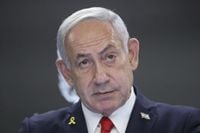Diplomatic relations between Spain and Israel have plunged to new lows following a heated exchange of accusations and retaliatory measures over the ongoing war in Gaza. On September 12, 2025, Spanish Foreign Minister José Manuel Albares summoned Dana Erlich, Israel’s charge d’affaires and acting ambassador in Madrid, to deliver a sharp rebuke. The move came after the office of Israeli Prime Minister Benjamin Netanyahu accused Spanish Prime Minister Pedro Sanchez of making "genocidal threats," an allegation that Spanish officials have categorically dismissed as both false and slanderous.
According to Spain’s Foreign Ministry, Albares called in Erlich to "categorically reject the false and slanderous statements from the Israeli prime minister’s office." The diplomatic spat was triggered by Spain’s recent decision to impose an arms embargo on Israel, along with new restrictions on the delivery of weapons and military-grade jet fuel. Spain also announced it would bar two far-right Israeli ministers—National Security Minister Itamar Ben Gvir and Finance Minister Bezalel Smotrich—from entering the country, a move echoed by several other European nations.
The escalation marks the latest chapter in a period of growing diplomatic friction between Madrid and Jerusalem. The immediate spark was a statement from Netanyahu’s office, which accused Sanchez of making remarks tantamount to "genocidal threats." This came after Sanchez defended Spain’s new measures by noting that the country lacks nuclear bombs, aircraft carriers, or vast oil reserves to exert pressure on Israel, so it must use diplomatic and economic tools to urge a halt to what he described as "genocide" in Gaza.
Israel has vehemently denied that its military actions in Gaza amount to genocide. The country is currently defending itself at the International Court of Justice in The Hague, where it faces accusations of precisely that. The Israeli government’s position is that its operations are legitimate acts of self-defense, and it has repeatedly rejected international characterizations that suggest otherwise.
As reported by Devdiscourse and other sources, the United States has also weighed in. The US State Department expressed concern over Spain’s decision to restrict ships and aircraft delivering weapons or military-grade fuel to Israel. Washington is wary that such measures could undermine efforts to resolve the conflict and complicate broader diplomatic relations in the region.
Spain’s actions are part of a broader European response to the Gaza conflict. In addition to recalling its ambassador from Tel Aviv, Spain joined the Netherlands, Slovenia, and Belgium in banning Ben Gvir and Smotrich from their territories. Both men are prominent figures in Israel’s far-right political scene. Ben Gvir leads the Otzma Yehudit party, while Smotrich heads Religious Zionism. Their hardline stances and public statements have drawn significant criticism from European governments, who accuse them of fueling tensions and undermining prospects for peace.
For its part, Israel has not remained silent. The Israeli government has accused Spain and other European countries of taking steps that are not only hostile but also, in their view, based on a misreading of the facts on the ground. The Netanyahu administration argues that such bans and embargoes only serve to embolden Hamas and other militant groups, making a peaceful resolution more elusive.
The war in Gaza has been a flashpoint for international controversy since it erupted, with civilian casualties mounting and humanitarian conditions deteriorating rapidly. European governments, including Spain’s, have faced mounting public pressure to take a firmer stand against Israel’s military campaign. The arms embargo and diplomatic sanctions announced by Madrid are widely seen as a response to these domestic and international calls for action.
Yet, the diplomatic fallout has not been limited to statements and sanctions. The reciprocal bans on ministers represent a symbolic, but potent, escalation. By barring Ben Gvir and Smotrich, Spain and its European allies are sending a clear message about the limits of acceptable conduct and rhetoric in international politics. At the same time, these moves risk deepening the rift between Israel and parts of the European Union, complicating efforts to mediate the conflict or provide humanitarian aid.
In the words of a Spanish Foreign Ministry official, “The statements from the Israeli Prime Minister’s office were labeled as false and slanderous.” This sentiment has been echoed by other Spanish officials, who insist that their government’s actions are motivated by a desire to uphold international law and protect human rights, rather than to threaten or destabilize Israel.
From the Israeli perspective, the situation looks quite different. Officials in Jerusalem have framed the Spanish measures as both unfair and counterproductive, warning that diplomatic isolation will not bring peace to the region. Instead, they argue, it will only harden positions and reduce the chances of meaningful dialogue.
The United States, caught between its close alliance with Israel and its partnership with European powers, has adopted a cautious tone. While expressing concern about the restrictions imposed by Spain, American officials have stopped short of openly criticizing Madrid. Instead, they have called for restraint and renewed efforts to find a diplomatic solution to the Gaza crisis.
Observers say that the current standoff is emblematic of broader divisions within the international community over how to respond to the conflict in Gaza. While some countries advocate for stronger measures against Israel, others caution that such steps could backfire, undermining the prospects for negotiation and reconciliation.
Meanwhile, the humanitarian situation in Gaza continues to deteriorate, with aid agencies warning of an impending catastrophe if fighting does not cease. Against this backdrop, the diplomatic row between Spain and Israel may seem like a sideshow, but it has real consequences for the people on the ground. Restrictions on arms and fuel deliveries could affect the balance of power in the conflict, while diplomatic isolation may limit Israel’s options for engagement with the broader international community.
Looking ahead, it remains to be seen whether the current tensions will subside or escalate further. Both Spain and Israel have signaled a willingness to stand firm, at least for now. For the families caught in the crossfire in Gaza, and for diplomats working behind the scenes, the hope is that cooler heads will ultimately prevail.
As the world watches, the diplomatic standoff between Spain and Israel serves as a stark reminder of how quickly international relations can unravel in times of crisis—and how difficult it can be to rebuild trust once it’s been lost.





